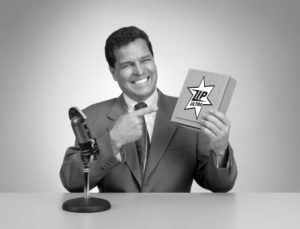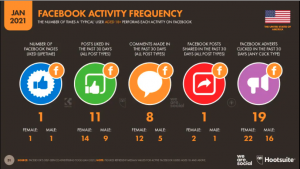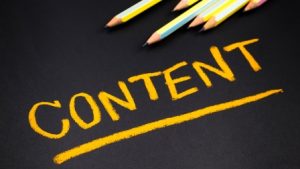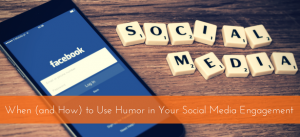Recent research from MetLife reveals more workers are stressed and burned out, which is stifling productivity: 37% report feeling stressed more than half the time while working, and 34% feel burned out.
Worry, fear, isolation, competing demands, distractions, limited resources—all can take a heavy toll on our energy level. And energy is the fuel that allows you to be productive at work.
Often, people think about energy only in the physical sense, being physically tired, but body-focused energy is just one of the elements you need to address to maximize your energy. The other two are mind and spirit. You need all three elements of the energy triad to achieve productive stamina.
It’s worth noting that there are reasons beyond what’s covered in this article that account for energy challenges. Everyone is different. What you need to do to drive your energy or to address your energy challenges might be something you work on with a medical or other professional. Meanwhile, I’ve found the following advice to help many people, myself included.
To offset the stressors you can’t control, focus on controlling what you can to boost your energy and your productivity.
If you want to fuel your energy, focus on your body, mind, and spirit.
 Body: Eat, sleep, and move to drive energy. Be active.
Body: Eat, sleep, and move to drive energy. Be active.
 Mind: Practice positive self-talk and mindfulness to feel energetic and ready to tackle your Greatest Impact Activities.
Mind: Practice positive self-talk and mindfulness to feel energetic and ready to tackle your Greatest Impact Activities.
 Spirit: Take Treasured time and find your path to feel at peace and happy.
Spirit: Take Treasured time and find your path to feel at peace and happy.
Body
You can be feeling motivated and proactive, but if you don’t get any sleep at night, it’s unlikely you’ll get much done during the day. Sure, you might be able to push yourself and trudge through, but if you’re tired and feeling depleted, being productive is a huge challenge.
Now let’s imagine you sleep well and have a productive morning. Then, at lunch, you eat the heaping remains of last night’s lasagna. A few slices of bread. More than a few cookies. After a brief sugar high, most people who’ve eaten a lunch like this feel sleepy all afternoon. When they do, they have trouble focusing, concentrating, and getting much done.
It’s not surprising that I suggest, then, that you should eat, sleep, and move to drive energy. For most people, if they do this, their energy will spike sustainably. There is, of course, no shortage of experts who will have different systems to help you eat well, sleep well, and exercise to maximize your energy. We researched the topic and found the following 10 tips to be most effective for eating, sleeping, and moving to drive energy.
- Be active. Yes, it’s that simple. No big system. Moving increases oxygen flow and releases chemicals in the body that help wake you up and sustain energy. Quick walks, stretches, and mid-day workouts drive energy.
- Eat protein, decrease carbohydrates. Carbohydrates can cause you to crash and stay tired.
- Eat smaller meals. Especially at lunch, eating smaller meals can help you boost energy.
- Get physically fit. Research shows fitness and energy go hand-in-hand.
- Drink one cup. Too much caffeine can induce crashing, but one cup here and there gives the boost without much of a subsequent dip. And yes, for me this is a hard one to stick to consistently.
- Take a nap. Don’t power through fatigue. Power nap for 20 minutes or so. Short naps burn away sleep inertia.
- Get enough sleep. Besides the obvious effect of feeling tired, not getting enough sleep decreases mental performance. A study found that getting only five hours five nights in a row produces similar effects of having a blood alcohol content of 0.1%.
- Sleep enough, but not too much. Conventional wisdom says sleeping seven to nine hours each night for most adults is the right amount. Research shows that six or seven hours might be better for longevity and cognitive health. 150 billion hours of research by Fitbit noted that your resting heart rate (and thus your overall health) is optimized at 7.25 hours.
- Don’t mix alcohol and sleep. If you want a good night’s sleep, tone down the alcohol as you near bedtime.
- Don’t watch excessive TV. Excessive TV watching leads to snacking and bad health. Bad health isn’t good for energy. When the next “continue watching” prompt pops up, opt to say no.
Mind
Have you ever wondered why, after three hours of registering for wedding gifts, you’re done, and you don’t care what you put on the list? Why you’re most vulnerable to buying snack food at the end of a long supermarket shop? Why tackling mentally taxing projects at night is much harder—at least for most people—if they had to make decisions all day? It’s because of mental fatigue.
For each decision you make, you pay a biological price. Decisions tax the brain. They make you tired. This is why in our book, Not Today: The 9 Habits of Extreme Productivity, we suggest you tackle your Greatest Impact Activity (GIA)—your top priority—early in the day before you’ve made too many decisions. Spending two hours clearing out emails and small things leads to mental fatigue. Even small decisions tax your brain. And when you’re mentally fatigued, you risk avoiding doing anything at all or making impulsive decisions.
Tackle difficult projects when your mental and physical energy is highest and do what you can to boost your mental energy, so you have more of it and sustain it longer each day.
Here are six pieces of advice to boost and harness your mental energy.
- Put your GIA first. Work on your Greatest Impact Activity before your mental energy is depleted. You’ll be able to apply your best brainpower to it. Certainly, some people thrive later in the day, but they’re the exception not the rule. Most people get their best thinking done in the morning because their physical and mental energy is the highest.
- Minimize decisions. Minimize the decisions you make, because decisions sap your energy. Barak Obama only wore blue or grey suits, so he wouldn’t have to think about it. Einstein wore only white shirts. Don’t make breakfast a decision…have the same thing most days. Adopt a consistent morning routine. Anything you can do to minimize decisions will maximize mental energy.
- Be a work environment minimalist. Remove anything from your environment that could be a willpower taxing temptation. Many studies have shown that if you resist a chocolate chip cookie or any temptation in front of you, it drains mental energy and you’re then less able to resist other temptations. Put your phone in another room. Put the magazines someplace else. Don’t have yellow sticky notes on your computer screen. Even get rid of the bookcase. Anything that can distract you or drain your willpower, remove it.
- Don’t ruminate. We all have negative thoughts from time to time, but sometimes they get caught in a thought loop in our heads. Psychologists call this rumination. Rumination depletes mental energy greatly. Say “3…2…1…Stop!” Distract yourself with a book. Talk to a close friend. Talk to yourself.Whenever I find myself ruminating on a topic, I stop and ask myself, “Can I do anything right now to change this?” If the answer is “no,” I accept it and move on. If the answer is “yes,” I do something about it or calendar time to do something about it. If the answer is “maybe,” I journal about it.Do whatever you need to do to break the cycle of rumination if it’s happening.
- Talk to yourself. The mind isn’t just about rational decisions, it’s about how you feel. If you’re feeling down, feeling negative, or otherwise not in a good emotional state, it’s nearly impossible to feel fully engaged and energized. Take a walk to clear your head, practice positive self-talk, or find your path to feeling better emotionally—you’ll find your energy stores both stronger and easier to replenish.
- Practice mindfulness. Mindfulness—being aware and present at the moment—is a great way to fight anxiety and increase energy. A growing body of research supports this, along with its productivity and happiness benefits. Skeptical that mindfulness is some new-age fad? Check out Meditation for Fidgety Skeptics by Dan Harris.
Spirit
Finding spiritual energy is an incredibly personal journey. I’ll simply suggest here that it’s energizing to find the spiritual path that’s right for you. The following six practical actions can help.
- Take Treasured TIME. The mental health benefits of leisure activities include lower levels of depression and improved physical and psychological status. Our productivity research at my company, RAIN, shows taking Treasured TIME is a key driver of happiness and that the most productive people take Treasured TIME more than twice as often as others.
- Make work meaningful. Set goals that, should you achieve them, really mean something to you. If you know the destination, working on the path tends to take less energy and it leads to feeling more fulfilled.
- Go outside to feel alive. Being outside in nature makes people feel more alive, according to a series of studies published in the Journal of Environmental Psychology. “Nature is fuel for the soul,” says Richard Ryan, lead author and a professor of psychology at the University of Rochester. “Often when we feel depleted, we reach for a cup of coffee, but research suggests a better way to get energized is to connect with nature.” Just 20 minutes outdoors is often enough.
- Breathe. Relaxed breathing techniques are an excellent way to reduce stress and anxiety. I often use this technique: I breathe in for five seconds, hold my breath for five seconds, and breathe out for six seconds. I do this three times. It slows me down and helps me to relax.
- Try yoga. Researchers at Boston University (Go Terriers! My alma mater.) School of Medicine used spectroscopic MRI to compare brain activity in participants who did one hour of yoga versus participants who instead read for an hour. The yoga practitioners showed an increase in GABA, a brain neurotransmitter that helps to control fear and anxiety responses. A bonus of yoga, it gets your body moving (see point #1).
- Find your spiritual path. Whatever the journey is for you, if you can find and connect with your spirituality, you can find peace, focus, and the foundation for ongoing sustained energy. Try something, anything, to find what works for you.
If your fuel tank is empty, having goals and feeling motivated is not enough to keep you productive. You want to be firing on all thrusters when it’s time to tackle your most important priorities, and you want those thrusters firing as long as possible throughout the day. To do this, you must fuel your energy.
Business & Finance Articles on Business 2 Community
(46)








